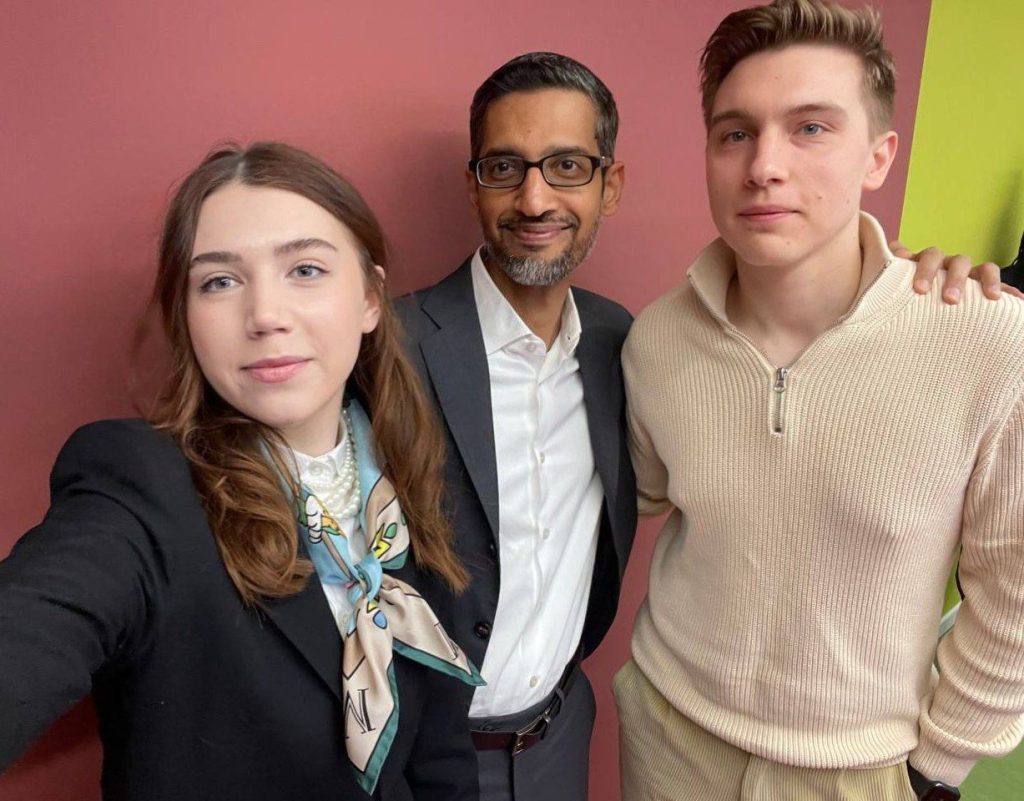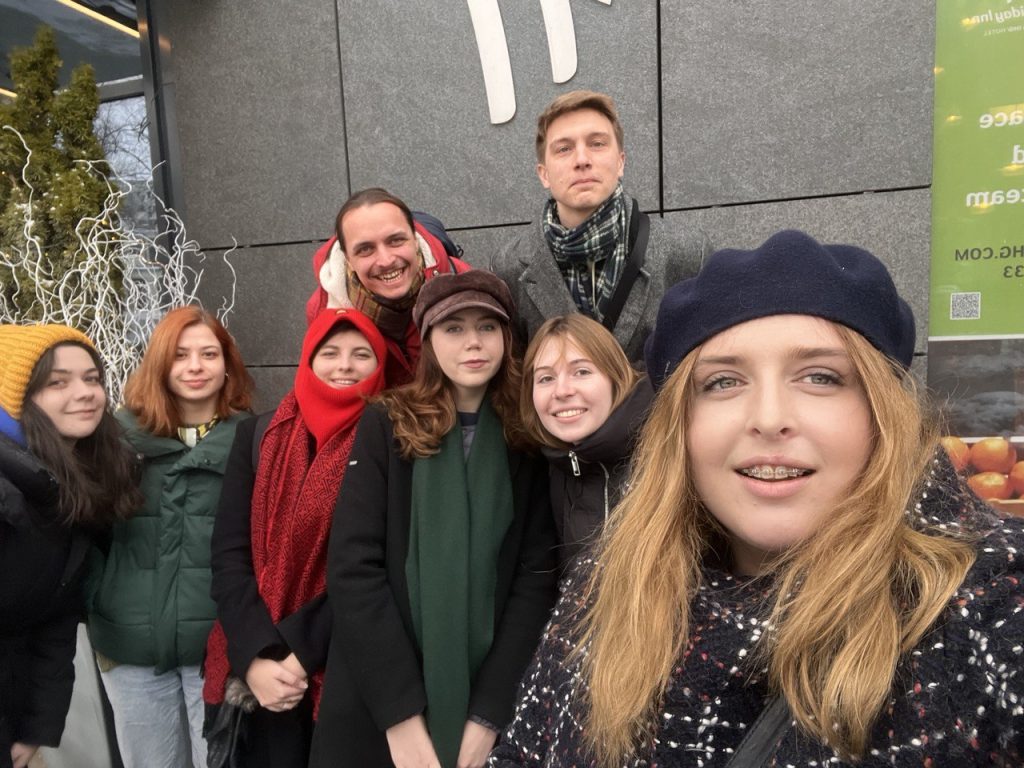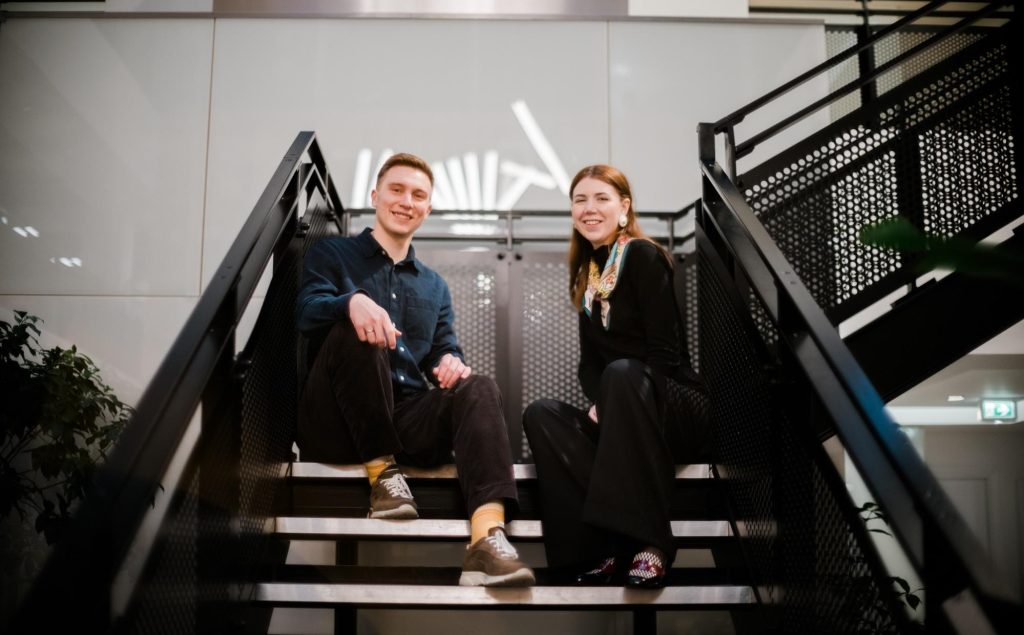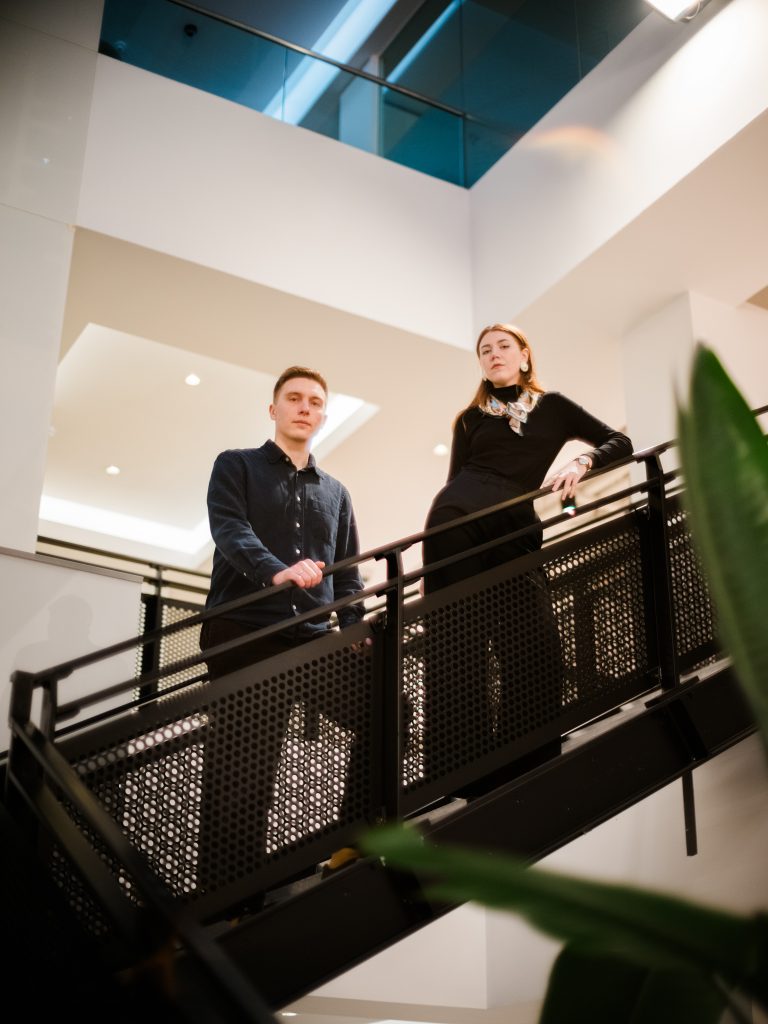Andriy Kusyy started as a software engineer and later became a data scientist before he founded his startup. Andriy had always been quite technical and worked in consulting, services, and product companies. He had started a very technical career and eventually ended up in technology management. About six years ago, he met his co-founder, Ksenia Iliuk. They were both passionate about rooting out disinformation and together founded LetsData in late 2022.

Creating a radar against Disinformation
LetsData collects data from millions of sources, including traditional media, social media, and digital news platforms like Telegram, Facebook, Instagram, YouTube, and TikTok. Their machine learning algorithms analyze these publications to identify key mentions, emotional sentiment, toxic language, and signs of coordination. Using over 15 models, they detect anomalies and provide real-time alerts to clients, helping them respond to potential risks. LetsData acts as a radar, eliminating the need for manual media monitoring and protecting against information operations like bot attacks and misinformation.

Andriy’s path to entrepreneurship
Although Andriy was always technical, he had a strong passion for history and geopolitics: “I would say that’s my big passion”. He met his co-founder Ksenia, an expert in malign information campaigns, during a program for young Ukrainian social entrepreneurs in London six years ago. They connected over the topic of fake news, combining Ksenia’s research expertise with Andriy’s data science background. Initially, they conducted lectures for journalists on disinformation and used technology to combat it. They then moved to pro-bono consultancy projects, helping civil society organizations tackle various disinformation campaigns in Europe and Ukraine. After three years of gaining experience and identifying repetitive requests, they saw a niche for a scalable product. This coincided with Russia’s full-scale invasion of Ukraine, increasing the demand for their product. Consequently, Andriy and Ksenia quit their full-time jobs to focus on building LetsData.
How disinformation can be weaponized
LetsData’s research has revealed a lot of state-sponsored disinformation in the world nowadays. According to Andriy, fake news is just one of the problems but it is the most obvious. The more insidious problem is oftentimes the misinterpretation of information or as Andriy refers to it, weaponization of information. You could have correct information, correct numbers, correct sources, and everything factually accurate, but the way it’s written or the way the information is put makes it seem different from reality. The information is taken totally out of context. For example, if you have information about some statistic then you could just say, guess how shocking it is that 37% of the people would hate this idea. And then you look into the sources and you see that 63% of the people would support that idea and 37% would not support it. However, the information is reported sensationally and differently to create an emotional response from the reader. So organizations need to know not only if the info is true or false, but they also need the interpretation. LetsData can analyze sentiments and biases and identify emotionally charged or triggering content. This helps combat weaponized disinformation.

Who is LetsData working with?
LetsData’s business has some chunk of B2G projects. They work with the Centers for Strategic Communication and other relevant government units. Many governments have this unit, which is responsible for strategic communications. There are centers of strategic communication in most European countries that are potential LetsData customers. Regarding the government, LetsData works with the stakeholders from some countries’ foreign affairs ministries. Different international organizations like think tanks and non-government organizations are also LetsData customers. They work with one of Ukraine’s world’s biggest and most active NGOs that deal with media matters.
LetsData also explored working directly with companies, which is, again, a separate but very big niche. They had success validating the need for a product in mid- and large-size enterprises in high-risk areas. Moderating media-related risks and information operations is vital for such companies, and their information space is too large to do it with manual approaches.

The team behind LetsData
Apart from the two co-founders, LetsData has nine people working full-time and a number of people in part-time positions. The team is built in a way to inculcate a maximum synergy between people having a deep understanding of the information operations in online information campaigns combined with those who are knowledgeable about cutting-edge technology. The machine learning & research team develops the NLP and other types of models, introducing the LLMs and so on. And the second part of the team are analysts. These are communication analysts trained in understanding, uncovering, and countering those disinformation narratives and campaigns. They test and validate the insights produced by the AI systems, annotate the data, and act as a customer success for LetsData clients In the middle, there is also an operational and product team of a product manager or operations manager, and as founders, Andriy and Ksenia handle sales and nimbly multitask with whatever is needed for day-to-day company operations.

Working with a co-founder
Working with a co-founder can sometimes be quite different from life as a solopreneur. However, Andriy says that working with Ksenia developed in an organic and super-productive manner and he is thankful for their cooperation. For LetsData’s business, both Andriy and Ksenia have to travel a lot, and oftentimes they travel separately. For example, one of the founders might need to go to London for a week, and another person has to go to Washington DC or San Francisco. This meant that sometimes they don’t see each other for weeks on end. Once they are back in the office, they discuss the trips and meetings and make decisions jointly based on the outcomes. During the many years that they have worked together, they were always able to reach a consensus. Andriy emphasizes the importance of a value match between the founders, aligning on where the company is headed. Andriy and Ksenia jointly created a well-defined set of values – they have guidelines for who they work with, how they grow, and which partners they take on. They have never had a major conflict while operating LetsData all the while taking very few vacations due to the rapid trajectory of the company’s growth.

How LetsData is financing its business
LetsData started mostly bootstrapped and welcomed its first paid clients 16 months ago, resulting in steady revenue growth. In their first year, they generated over €500,000 and participated in a cyber growth program from one of Europe’s largest B2B SaaS accelerators, Start-Up Wise Guys, receiving an additional €150,000, which helped LetsData to grow the team. Now profitable and reinvesting profits, LetsData is planning to launch freemium products and is in talks with various funds for their next growth phase. The strategy is to utilize that to sustain the growth for the next two years and eventually get to Series A. Despite the conservative nature of European investors and the novelty of the disinformation market, LetsData has attracted interested investors. Andriy emphasizes the importance of finding the right fit, as not every fund is suitable for a long-term partnership. Currently, they are in discussions with cybersecurity and specialized funds.

The role of the EMDIEL program in Andriy’s career
Andriy describes the EMDIEL as a life-changing experience. Right after the full-scale invasion of Ukraine, Andriy, who had been traveling for work, found himself in Berlin. He had a new Startup and also noticed a huge demand for their offerings. What should I do? How do you do Startups? As a technical engineer, the questions were baffling for Andriy. Both the co-founders had no startup experience so Andriy began at first by taking a few ESCP courses with Masters students. He got some theoretical knowledge about building startups and also interacted with entrepreneurs who would visit the campus. He later connected with Matthias Mrożewski, who introduced him to the EMDIEL program by describing it as an “MBA for entrepreneurs”. Andriy then spoke with René Mauer, the academic director of the EMDIEL and head of the Jean Baptiste Say Institute, ESCP Business School’s Entrepreneurship department, and found out that the course could help him understand the entrepreneurial scene and also build a network.
Andriy considered the EMDIEL more like an Accelerator for his Startup and enjoyed the variety of modules. The San Francisco module was particularly exciting for him as an AI entrepreneur and he learnt a lot in San Francisco with the EMDIEL, while Gen AI was making waves in the market. The EMDIEL helped Andriy connect with many successful entrepreneurs, who he kept in touch with as well after the EMDIEL ended. He got the right introductions and lots of inspiration which was extremely valuable. For him, the modules in London or Turin where you also meet the ecosystem players were intriguing. He also gained amazing insights from the Dubai and Abu Dhabi module and saw the ecosystems in areas he had only visited earlier as a tourist. The theoretical lectures and material also helped him to understand entrepreneurial frameworks, like the effectuation framework. He refined his approach as a founder and was able to reflect on his actions better. The EMDIEL helped him with basic entrepreneurship concepts, but it was also about connecting with amazing groupmates who have lots of knowledge and connections in every field.

Next steps for LetsData
LetsData is a remote-first company and so the team is scattered and growing across the US, EU, and Ukraine. The primary focus at the moment is on creating additional sales channels. Right now, LetsData provides subscription-based products to end customers but they are integrating with additional channels. They are adding their tools to existing products that require insights into disinformation. According to Andriy a lot of exciting partnership announcements are in the works.
LetsData is also expanding its expertise and scope and recently introduced monitoring of Information Operations on TikTok in addition to the other already existing platforms They are also expanding the marketing & sales team, while also expanding the product team and R&D. North American operations are growing with the main focus on a hub in New York. They have hired their first US employees in Washington DC. In the next two years, LetsData wants to 5X its growth to eventually go for a Series A funding round. In 5 years, LetsData wants to become THE solution for disinformation management across the globe but Andriy emphasizes that a lot of work is needed to reach that goal. The team is however fully motivated to hit that goal.

Final advice for budding entrepreneurs
Andriy believes that entrepreneurship is no longer a dangerous journey like it used to be. There are a lot of opportunities for early-stage entrepreneurs. Programs like EXIST and other government scholarships for entrepreneurs and accelerator programs have made this much easier. It’s quite easy today to get initial checks of € 20.000 to € 50.000 for you to try an idea for a year or so. Founders don’t need to risk their own money and there is also a lot of support from the ecosystem from both the private sector and from the government.
Andriy also emphasizes the value of having a co-founder. Sometimes you get lost while working and you need to have a second perspective. Having a co-founder whom you know, whom you trust, and whom you can rely on really helps in that journey. Without a co-founder, Andriy doesn’t believe LetsData could become what it is today.
When it comes to the idea, Andriy believes that the best idea is when you have a deep synergy between some kind of domain expertise and technology. A balance between skill sets in the founding team is also useful. One person could be technically savvy and be able to create quick mockups and landing pages to test out the idea. The other founder could have domain connections and knowledge. For example, someone who has an internship in a particular field or has a network that can be mobilized to solve domain-specific problems. You could build a logistics startup that solves a niche problem and earn a few million just because you identified and solved it. The chances of failure with this comprehensive approach are quite minimal.
This article was written based on an interview conducted by Supriyo Panda from the ESCP Blue Factory team.